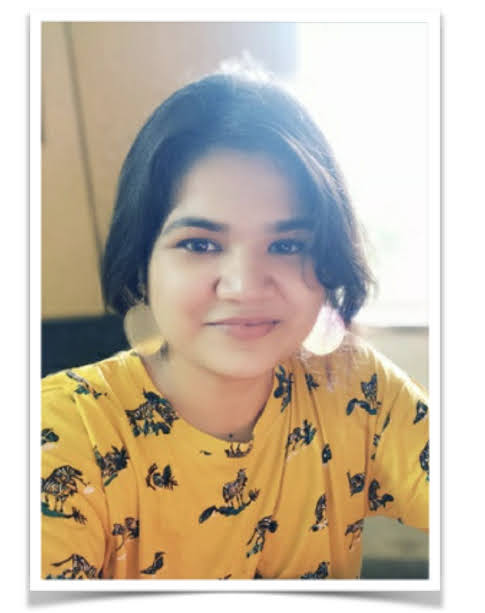

Meet the Glorious Women of Astronomy
Check out the inspiring story of how Srishti Tiwari, a postdoctoral student at the Inter-University Centre for Astronomy and Astrophysics, conquered the bounds of a conservatory society to pursue a career in GW Astronomy. Read about her love for the Kalimba (thumb piano) and how she finds balance in life by pursuing fitness activities and meditation.
What drove you to pursue Astrophysics as a research career?
I never started astrophysics as a 'career' in the first place. I was just a curious kid with an excellent academic record who used to marvel at the jewels (stars) in the night skies. I always felt naturally inclined towards Physics as a subject because of its capacity to explain the natural world around us. With my understanding of physics, I had an 'Aha' moment during high school when I could spot slight colour variability in stars with naked eyes and relate it to the Wien's displacement law for black bodies. And that developed a strong passion in me to study more about the physics of stars which eventually drove me to obtain a Ph.D. in astrophysics. It's only now, as a postdoctoral fellow, do I realize that I am a working professional in the exciting field of astrophysics, i.e., a woman with a career!
What hardships did you go through while being in your field?
The hardship in my journey to becoming an astrophysicist, as I recall, was mainly on the personal front. I come from a conservative family where women were never allowed to venture out of the house alone or be sent to a different city/state for higher education. So, despite having an excellent academic record throughout my school and being a first rank holder in boards in my city, I had a hard time persuading my family to send me to Delhi University to pursue an honours degree in physics, forcing me to take up engineering in a local college after completing my school. But, as luck would have it, before the commencement of the second year of my B.Tech., my father agreed to send me to Miranda House College - a women's college at the University of Delhi, and thus began my formal education towards becoming an astrophysicist.
Could you list out the achievements in the course of research?
I never count certificates, marks, or medals as one's actual achievements. True achievements are the 'skills' that you acquire and the person you become while pursuing a dream/goal. As the saying goes, "build up a dream so big that the dream builds you up." The biggest asset that I have obtained by choosing the field of astrophysics or research, in general, is the scientific/critical way of thinking. During my study, I have also learned to communicate effectively. I have also become a more confident, solution-oriented person with the capacity to develop and discuss ideas. Last but not least, it is always a pleasure to be well-received and looked up to by family, friends, and acquaintances for being a scientist.
Apart from research, what hobbies do you share?
I am a fitness enthusiast and regularly engage in exercise first thing in the morning - high-intensity interval training (both bodyweight and weighted), yoga, and Zumba. I also try to meditate and practice mindfulness and gratitude daily for my overall well-being. I like to play my Kalimba (thumb piano) at leisure. It has a very soothing sound. Further, I enjoy dancing, jamming, and socializing. I also love listening to podcasts apart from watching movies and documentaries and try to remain generally aware of the world.
As a member of the LVK collaboration, how would you like to contribute to the Science community?
Science encompasses broad areas of studies, including physics, chemistry, and biology, with their branches and sub-branches. As a member of the LIGO- Virgo- KAGRA collaboration, I will strive to put my sincere efforts into adding more information to the already available knowledge about gravitational waves and relevant physics. In this regard, I would choose to pursue a career in gravitational-wave astronomy in the future as well.
What are your thoughts on Women in STEM?
It takes a lot of hard work, perseverance, and patience to be in STEM for both men and women. But there is a conspicuous difference between the number of males to females in STEM, and it can only be bridged by encouraging more women into science, engineering, and mathematics. So, I urge all the women in STEM to continue doing the great work and motivate much more alike. And, I will humbly request all the male colleagues and policymakers to provide equal opportunities and a suitable environment for women to progress in the field.
